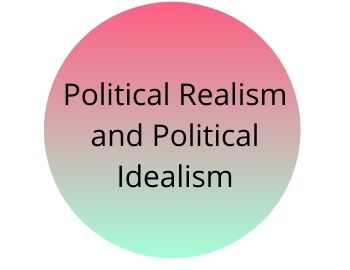Table of Contents
Budget:
A budget is one of the most important devices of financial administration. It is a device to control and regulate the finances of the state. Successful fiscal management revolves around budgeting. Furthermore, a budget is an instrument of control. It is an instrument for scheduling and evaluating governmental activities in general and its social and economic policies, in particular. In the days of laissez-faire, the budget used to be a simple statement of estimated income and expenditure of the government. However, since the emergence of a welfare state committee to plan and secure the socio-economic welfare of all its people, a budget has come to be a major instrument for stating and planning governmental policies, plans, and programs for the year to follow.
A modern state, being a welfare state, undertakes several activities to promote the common welfare of the society at large, and in particular, the welfare of the weaker sections of society. It has to act as an accelerator of socio-economic change. The Government of a state has to continuously get engaged in nation-building and developmental activities. It has to work for rapid modernization, development, and industrial technological advancement.
For this purpose, it has to undertake long-term as well as short-term planning. It has to secure optimum mobilization and full utilization of resources. For this purpose, it undertakes budgeting. It is through the budget that it seeks to keep its finances healthy and under control. The budget guides the financial activities- all income as well as expenditure activities of the government. Each year, the government formulates a budget that reviews its past performance, analyses the current activities, and predicts the nature of prospective activities in the coming financial year. The whole exercise is termed budgeting.
Budget Meaning and Definition:
‘Budget’ is a term that has been derived from the old English word “bougette” which means a sack or a pouch. In fact, it used to be a leather bag in which the British Chancellor of Exchequer used to carry papers relating to the finances of the state which were to be placed before the parliament for approval. Gradually, the term budget came to be termed as a set of papers that contained facts and figures regarding public income and expenditure. Budgeting refers to the process of collecting, classifying, analyzing, and presenting these facts and figures. In addition, it contains an account of governmental policies for the year to follow. In this way, a budget can simply be defined as an annual financial statement of governmental income and expenditure. However, it contains more than this.
(1) A distinguished French authority on budgeting, Rene Stourn, defines the Budget of the state as “a document containing a preliminary approved plan of public revenue and expenditure.”
(2) Taylor defines a budget as “a financial plan of the government for a definite period.”
(3) According to Paul Leroy Beaulieu, “Budget is in the first place a statement forecasting revenues and expenditures during a certain determined period of time. It is also an authorization of an order by competent authorities to make the expenditures and collect the revenues.”
(4) An American scholar, holds that a Budget involves three elements:
- The Financial Plan.
- The procedure for formulating, authorizing, executing, and controlling the plan.
- Some governmental authority is responsible for each stage of the procedure.
(5) An American writer, Harolds R. Bruce, defines a budget as “a financial statement prepared in advance of the opening of a fiscal year, of estimated revenues and proposed expenditures of the given organization for the ensuing fiscal year.”
To conclude our discussion of the definition of a budget, we may say that a budget contains the following elements:
- It is a statement of expected revenue and proposed expenditure of the authorities concerned.
- It requires some authority to sanction it.
- It is for a limited period; generally, it is for a year.
- It also sets forth the procedure and manner in which the collection of revenue and the administration of expenditure is to be executed.
A budget is in fact a plan of action that is prepared in advance. It reflects and manifests the programme of the organization (Government) for the coming financial period (year). It is, however, more than a mere statement of income and expenditure of the government. Besides this, it gives an account of the government itself. The Encyclopedia of Social Sciences affirms: “The real significance of the budget system lies in providing for an orderly administration of the financial affairs of the government.”
While defining the nature and content of a Budget, Dimock observes, “A budget is a financial plan summarizing the financial experiences of the past, stating a current plan and projecting it over a specified period of time in the future.”
Accordingly to Willoughby, “The budget is something much more than a mere estimate of revenue and expenditure. It is, or should be, a document through which the chief executive comes before the fund-raising and fund-granting authority and makes a full report regarding the manner in which he or his subordinates have administered affairs during the last complete year, in which he exhibits the present condition of the public treasury and on the basis of such information, sets forth his programme of work for the year to come and the manner in which he proposes that such work should be financed.”









Comments (No)